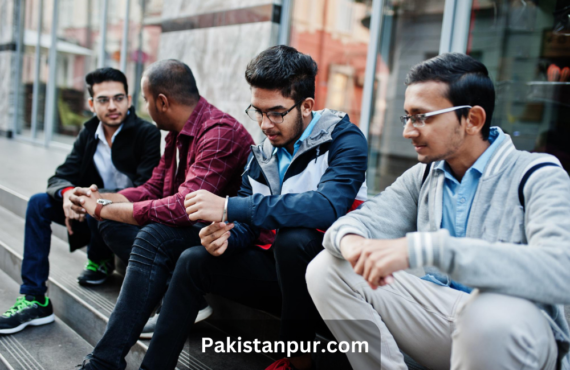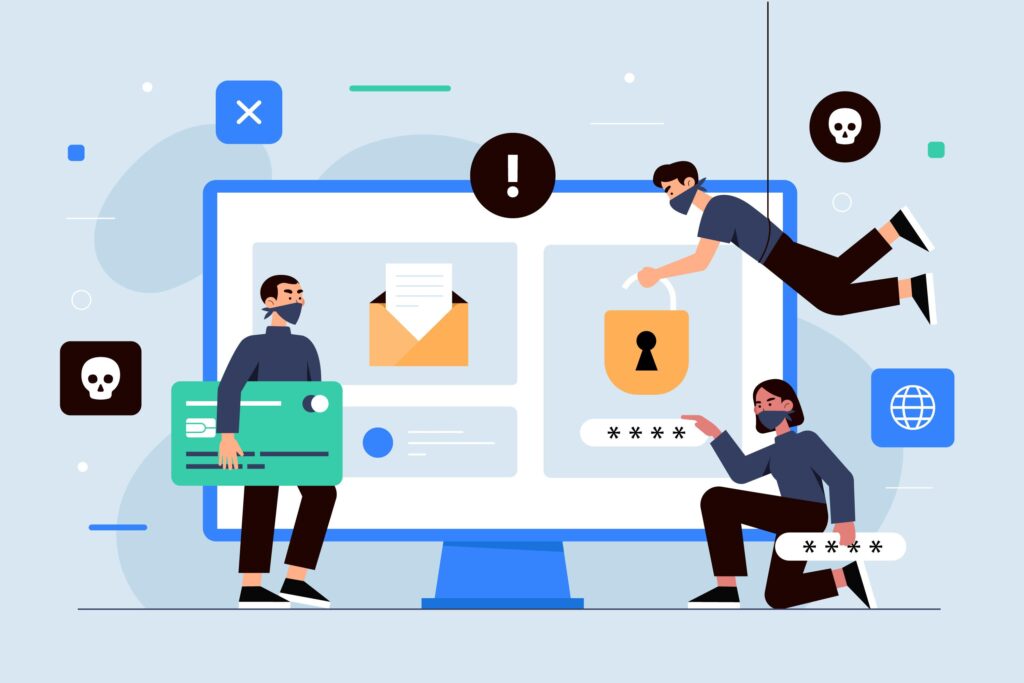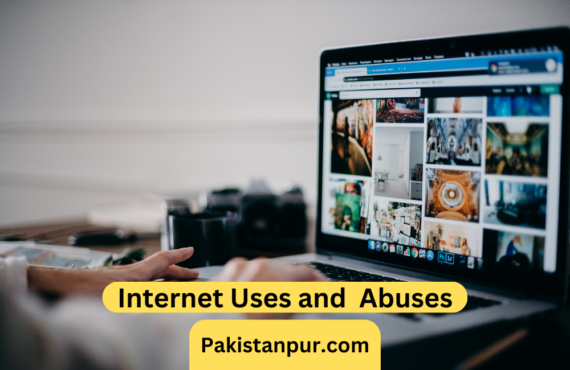In our modern, digitally connected world, the internet has become a pulsating lifeline, radically transforming various aspects of daily life in Pakistan. From bridging distances with a single click to democratizing information access, the internet has reshaped societal norms and behaviors. However, like the two faces of a coin, it also brings with it a myriad of challenges.
This blog post aims to explore the intricate landscape of the internet in Pakistan, meticulously examining its remarkable advantages while also scrutinizing the potential for misuse. We Explore into the nuances of this multifaceted realm, offering a discerning perspective that highlights both its benefits and potential drawbacks.
The Positive Impact of the Internet in Pakistan
First, let’s delve into the myriad of positive influences the internet has had on the social, political, and personal lives of the people of Pakistan.
Enhanced Connectivity
The advent of the internet has truly shrunk the world for Pakistanis, bridging distances like never before. Internet connectivity has enabled individuals to maintain social connections, regardless of geographic location.
It has proven to be a boon for businesses, allowing them to transcend borders and reach a global audience. Social media platforms and digital communication tools have been instrumental in this regard, facilitating connections that were previously impossible due to physical distance. With advancements in affordable digital technology, even rural and remote areas of Pakistan are not far from the reach of the internet.
This presents the potential for untapped communities to enter the digital world, consequently enabling them to participate in global dialogues and contribute to the digital economy.

Democratized Access to Information
Another major stride the internet has made in Pakistan is democratizing the access to information. The internet, serving as an open and vast repository of data and knowledge, has leveled the playing field.
Gone are the days when access to information was limited to privileged sections of society. Today, with just a few clicks, anyone with internet access can dive into the wealth of knowledge that the World Wide Web offers.
Educational resources, scholarly articles, news, and other forms of valuable information are now readily accessible. This has not only empowered individuals with knowledge but also facilitated informed decision-making in various areas of life.
This unprecedented access to information has also fostered a culture of lifelong learning and curiosity. It has broken down barriers, making it possible for anyone, regardless of their socio-economic background, to learn, grow, and contribute to society.

Transformation of Societal Norms
The internet has profoundly reshaped societal behaviors and norms in Pakistan, altering the dynamics of how people communicate, interact, and consume information. It has led to the rise of digital communities, where people form connections based on shared interests, beliefs, or experiences, irrespective of their physical location. Furthermore, social media platforms have become a powerful tool for expression, opinion sharing, and social mobilization, giving birth to digital activism.
Besides, the internet has changed the consumer behavior in Pakistan, with online shopping gaining popularity due to its convenience and wide product range. This has also resulted in businesses adapting to online platforms to cater to their audience.
In the realm of entertainment, the shift towards online streaming services has been notable, changing how people consume media and entertainment.
Moreover, the internet has transformed the educational landscape with the advent of online learning platforms, making education more flexible and accessible.
In essence, the internet has reshaped societal norms and behaviors in Pakistan, making it a digital society where information, communication, and transactions are increasingly being conducted online.
The Dark Side of the Internet in Pakistan
Cyberbullying

Despite the numerous benefits, the advent of the internet in Pakistan has also given rise to a serious issue – cyberbullying. This digital form of harassment is becoming increasingly prevalent, with both children and adults falling victim to it.
Cyberbullying often involves the use of digital platforms to threaten, harass, or intimidate individuals, causing significant emotional distress. The Pakistan Telecommunication Authority (PTA) reported a surge in online harassment complaints in recent years, highlighting the widespread nature of this issue.
The impact of cyberbullying can be profoundly damaging. It can lead to low self-esteem, mental health issues, and in severe cases, suicidal thoughts. Furthermore, it inhibits the victims’ ability to fully participate and express themselves in the digital society, limiting their opportunities for learning, communication, and growth. Addressing cyberbullying, therefore, is a pressing concern to ensure the safety and well-being of internet users in Pakistan.
Privacy Concerns
Alongside cyberbullying, invasion of privacy is another serious concern associated with the increased use of the internet in Pakistan. Internet users’ personal information, such as their names, addresses, and banking details, are often stored on various online platforms, making them vulnerable to data breaches and identity theft. Furthermore, some users find themselves victims of unwarranted surveillance, with their online activities being tracked without their knowledge or consent.
The lack of comprehensive data protection laws in Pakistan exacerbates these privacy issues. While some laws do exist, they often fall short in effectively safeguarding users from invasive practices such as unwarranted data collection and sharing. This lack of legal protection contributes to a sense of insecurity among internet users, deterring some from fully utilizing online resources and services.
For example, the absence of explicit consent in data collection practices and the use of cookies tracking users’ browsing habits contribute to a sense of intrusion, raising alarming questions about individual privacy rights in the digital age. Therefore, the establishment of robust privacy laws and the promotion of digital literacy are crucial in ensuring users’ privacy and encouraging a safe online environment in Pakistan.

Internet Addiction
Internet addiction is becoming an increasingly prevalent issue in Pakistan, mirroring global trends. The term refers to compulsive internet use to the point where it interferes with daily life, causing negative impacts on social, occupational, and psychological functioning. Users may find themselves spending inordinate amounts of time online, leading to withdrawal from real-world interactions and responsibilities.
The pervasive accessibility of the internet, coupled with its integration into almost every facet of modern life, from education to entertainment, creates an environment conducive to addictive behaviors. Particularly for the younger demographic, the lure of social media platforms, online gaming, and endless streams of digital content can lead to excessive usage patterns.
What exacerbates this issue is the blurred line between productive internet use and addiction. Often, signs of internet addiction such as neglect of personal life, escapism, and mood modification are dismissed as by-products of the digital age rather than recognized as a serious concern. This lack of awareness and understanding underlines the need for education and regulation measures to address the growing issue of internet addiction in Pakistan.
Conclusion
The benefits of internet use in Pakistan are manifold, including increased accessibility to information, enhanced educational opportunities, and a platform for social interaction and entertainment.
However, the potential for abuse is considerable. The lack of robust privacy laws can compromise user data, exposing individuals to potential surveillance, fraud, and breach of personal information.
Internet addiction is another growing concern, with excessive online usage patterns causing significant social, occupational, and psychological disruptions.
These challenges underscore the urgent need for responsible internet usage, highlighting the importance of digital literacy education and stronger regulatory measures to protect users and promote a safer online environment.


